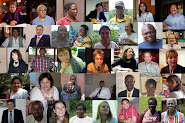
Written by Amon Anderson of Acumen Fund - Nairobi, Kenya
I’ve been studying, working with and thinking about leadership development for the last seven years, but I never stop being surprised. This summer, I led an idea session for the Center for Creative Leadership to brainstorm how leadership development could be applied in the context of poverty. But in this group of East Africans, West Africans, and North Americans, we could barely agree on semantics—leadership for the base of the pyramid, bottom of the pyramid, leadership for the majority, leadership for all… But no matter what we called it, we all could agree that not only did the poor have little access to leadership development tools, but the research and resources at hand had limited relevance to someone living in poverty.
That is not to say that there aren’t leaders. I have had the honor of meetings leaders born into poverty and raised through adversity who demonstrate true leadership irrespective of socio-economic status. Living in Ethiopia, I met Solomon, a young man who lost three of his limbs when the Addis-Djibouti railway overturned on route to Dire Dawa, Ethiopia’s second city. Solomon ended up in one of Mother Theresa’s clinics and tried a variety of prosthetic options, none of them feasible for the life he would lead in Ethiopia. He decided to pack it up and return home. Solomon wanted to start his own business and I worked with him over a period of months to figure out how he could make it happen. Solomon left his old community, where people saw him as half the man he once was, and established one of the most successful video rental shops in his new neighborhood. His business has grown quickly because Solomon has impressed and befriended those around him, and he’s not done yet. He’s sending home money to his mother, employing boys from the street and he dreams of opening a proper internet café. After such a devastating accident, many in Ethiopia take to the streets as beggars—either by choice or by force—but Solomon chose a different path. His optimism, courage, and work ethic helped him found his shop and attract a growing number of customers each day.
For me, leadership is about unlocking human potential. In my work with the Cherokee Gives Back Foundation and the Acumen Fund, I have struggled to find entrepreneur-leaders and provide them with the financial support needed to succeed and alleviate poverty through market-oriented solutions. But finance is only part of the picture. I have participated in two Leadership Essential programs, designed by the Center for Creative Leadership’s Global Voices of Leadership initiative, and experienced first-hand the impact of “leadership development for the majority.” I see immediate potential to introduce these tools to a broader audience in East Africa, but I see an even greater opportunity/challenge. How do we take this concept of leadership development and apply it to the people living in the villages and slums. In East Africa, the “pyramid” looks more like the Eiffel Tower—a needle at the top and large in its foundation. I believe that realizing the human potential of this “foundation” will require creativity and a cross-disciplinary effort. But I also believe in the power leadership development to transform the paradigm. Solomon is one of those extraordinary leaders who succeed, no matter the odds. There are many more out there like Solomon, and with appropriate and accessible leadership development, the effects could be revolutionary.




















